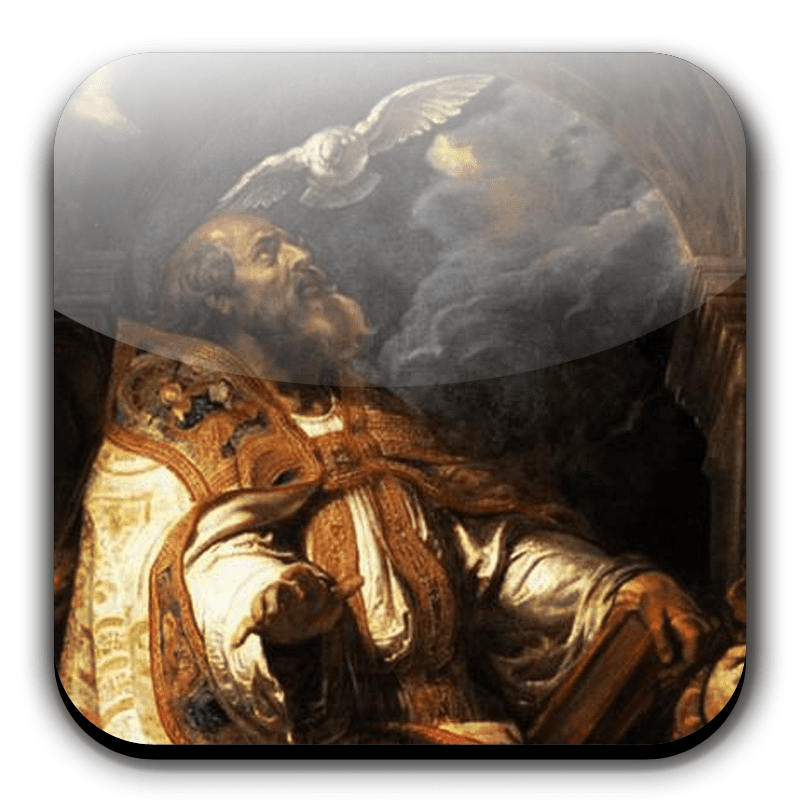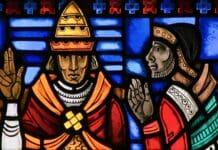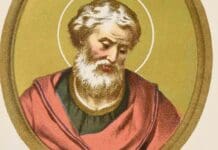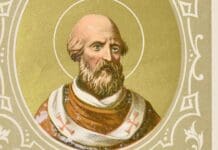Pope St. Gregory was born in Rome, the son of a wealthy Roman Senator. His mother was St. Sylvia. He followed the career of public service that was usual for the son of an aristocratic family, becoming Prefect of the City of Rome, but resigned within a year to pursue monastic life. He founded with the help of his vast financial holdings seven monasteries, of which six were on family estates in Sicily. A seventh, which he placed under the patronage of St. Andrew and which he himself joined, was erected on the Clivus Scauri in Rome. For several years, he lived as a good and holy Benedictine monk.
Then Pope Pelagius made him one of the seven deacons of Rome. For six years, he served as permanent ambassador to the Court of Byzantium. In the year 586, he was recalled to Rome, and with great joy returned to St. Andrew’s Monastery. He became abbot soon afterwards and the monastery grew famous under his energetic rule. When the Pope died, Gregory was unanimously elected to take his place because of his great piety and wisdom. However, Gregory did not want that honor, so he disguised himself and hid in a cave, but was found and made Pope anyway.
He was elected Pope on September 3, 590, the first monk to be elected to this office. For fourteen years he ruled the Church. Even though he was always sick, Gregory was one of the greatest popes the Church has ever had. He reformed the administration of the Church’s estates and devoted the resulting surplus to the assistance of the poor and the ransoming of prisoners. He negotiated treaties with the Lombard tribes who were ravaging northern Italy, and by cultivating good relations with these and other barbarians he was able to keep the Church’s position secure in areas where Roman rule had broken down.
His works for the propagation of the faith include the sending of St. Augustine of Canterbury and his monks as missionaries to England in 596, providing them with continuing advice and support and (in 601) sending reinforcements. He wrote extensively on pastoral care, spirituality, and morals, and designated himself “servant of the servants of God”, a title which all Popes have used since that time.
He never rested and wore himself down to almost a skeleton. Even as he lay dying, he directed the affairs of the Church and continued his spiritual writing.
He codified the rules for selecting deacons to make these offices more spiritual. Prior to this, deacons were selected on their ability to sing the liturgy and chosen if they had good voices.
Because he loved the solemn celebration of the Eucharist, St. Grergory devoted himself to compiling the Antiphonary, which contains the chants of the Church used during the liturgy (the Gregorian Chant). He also set up the Schola Cantorum, Roman’s famous training school for chorusters.
St. Gregory died on March 12, 604 and was buried in St. Peter’s Church. He is designated as the fourth Doctor of the Latin Church. His feast is celebrated on the date of his election as Pope.

















